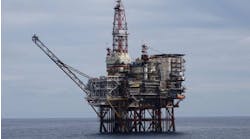The melting of Arctic ice is speeding up due to the global climate change, a process that could give oil and natural gas developers access to new resources off the coast of Alaska, Canada, and Russia, environmental scientists said Monday.
This will have positive implications for the major oil and gas developers in the Arctic, including BP, ExxonMobil, and ChevronTexaco.
However, melting ice also promises to present new challenges for the industry. The Arctic meltdown and resulting flooding already has begun to impede access to onshore drilling sites in the Alaskan tundra.
The scientists who prepared the Arctic Climate Impact Assessment international study measured the effects of climate change through changes in temperature and on the areas covered by sea ice, as well as by shrinking snow coverage.
In the past 50 years, it has been reported that the temperature over Alaska, Russia, and Canada has increased 3-5° Fahrenheit, which according to experts, is a very big number.
The warmer weather has caused a decline in the amount of sea ice in the Arctic in the last 30 years, along with a decline in the volume of glaciers.
According to ABC news, "We've lost an area of sea ice larger than all of Arizona and Texas together.
As the sea ice melts it will also further accelerate global warming by reducing the ability of the ocean's surface, once covered with white snow and ice, to reflect solar energy and keep the Artic cold.
The result of these changes could be a complete loss of sea ice in the Artic region by the end of the current century, a development that would likely reveal new resource areas.
Less sea ice will increase marine access to the region's resources in the decades ahead, thus expanding opportunities for shipping and possibly for offshore oil exploration and development.
Improved sea access to oil and gas sites in Russia has already occurred and will accelerate in the decades ahead according to the American Meteorological Society.
Oil and gas companies will also face new challenges, making it more difficult to operate in the Arctic. It has been reported that because of warming, the number of days per year in which travel on the Alaskan tundra is allowed has dropped by roughly 50% to 100 days in the past 30 years.
Coal, oil, and natural gas industries in Russia are expected to similarly benefit from improved access by sea and face reduced access by land due to climate change, according to experts.
The implication for oil and gas companies will also stretch to Arctic pipelines and infrastructure, which were built to reside on ice and may need to be reevaluated and potentially moved.
As reported by ABC news, "The biggest contributor to global warming is the release of emissions into the air, which can be reduced with current and new technology."
11-09-04


